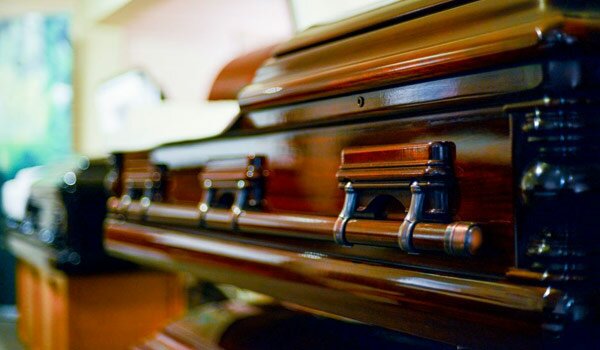When Death Occurs
Whether a death is sudden or expected, the loss of a loved one is indescribable. When you are in a heightened emotional state, even the most basic decisions can seem staggering. This section seeks to guide you through the immediate hours following a passing.
When death occurs at home or a place of business:
If the person was not under hospice care, the police will have to be notified immediately. The police will be dispatched to the home and will place the call to the coroner or medical examiner. From there, the coroner or medical examiner will remove the body and determine whether further action is necessary. The coroner or medical examiner must release the body before a funeral home can do anything. If the person was under hospice care, contact the hospice representative, and they will notify family members what the proper procedures are to follow.
When a death occurs at a hospital/nursing home/hospice facility:
The staff of a care facility, such as a hospital or nursing home, will notify you and the necessary authorities immediately after a death has occurred. If a funeral home has been provided to the hospital or nursing home, they will be notified at the time of passing. If you are present at the hospital when the funeral director arrives, they will ask a few questions about the deceased's wishes and set up a time to make arrangements. If you are not present, a funeral director will contact you by telephone to discuss these arrangements.
Informing a Funeral Director:
Once everything has been cleared with the proper authorities, the next call you place should be to a licensed funeral director. Funeral directors are here to help you obtain a death certificate, transport the body, and, in the event pre-planning was not done, select a casket or urn and arrange the funeral or memorial service. The funeral director will also help you notify the employer and insurance company of the deceased. Funeral directors are there to help you and advise you.
Meeting a Funeral Director
You should meet with a funeral director within 24 hours of a death to begin making final arrangements for your loved one. Deciding on these final arrangements may seem like a very daunting task, especially when you are in heightened emotional state. Do not worry: funeral home staff have years of experience, and will strive to ensure everything goes as smoothly as possible.
Making Arrangements:
First, the Funeral Director will gather information required for the death certificate. This includes:
- Full Name and Address
- Marital Status
- Date and City of Birth
- Father’s Name, Mother’s Name (including maiden name)
- Name of Spouse (if married or widowed)
- Occupation and Employer
The funeral director will also need pertinent documents required to do all the legal paperwork, which may include:
- Account Statements
- Beneficiary Designations
- Life Insurance Policies
- Real Estate Deeds
- Car and Boat Deeds
- Stock and Bond Certificates
- Pre-Nuptial Agreements
- Post-Nuptial Agreements
- Loans and Leases
- Copies of Bills (Hydro, Cable, Phone etc.)
- Last Will
- Tax Returns
If no pre-planning has been done, necessary arrangements need to be made for the funeral service. These include:
- Scheduling the location, date and time of the visitation and funeral service
- Selecting burial or cremation
- Choosing Funeral Products
- Arranging a cemetery plot
- Preparing an obituary notice
- Scheduling transportation arrangements
File for a Death Certificate
A death certificate is a legal document indicating the cause of death, including other vital statistics pertaining to the deceased, signed by the attending physician. In case your loved one died due to an accident, a coroner or the county medical examiner may prepare the form. If you feel that you need assistance in filing for this legal document with the province, we can help you. Certified copies of the death certificate can also be purchased at the same time. These certified copies are important when gaining access to bank accounts and safety deposit boxes, claiming for benefits due to the family (i.e. insurance claims), and transferring or selling ownership of properties.
Casselman
709 Principale Street, P.O. Box 333
Casselman, ON K0A 1M0
Tel: (613) 764-3286
Fax: (613) 764-5279








